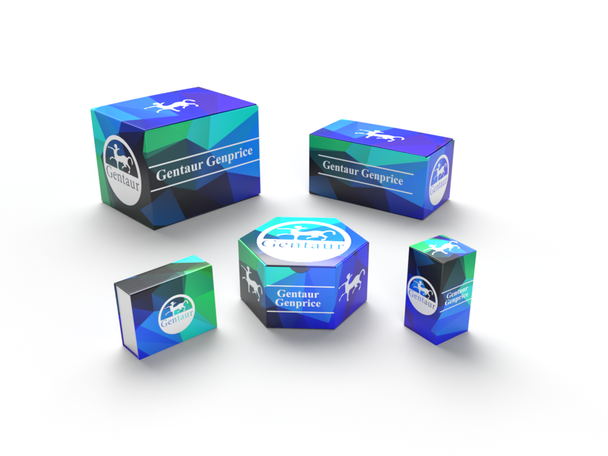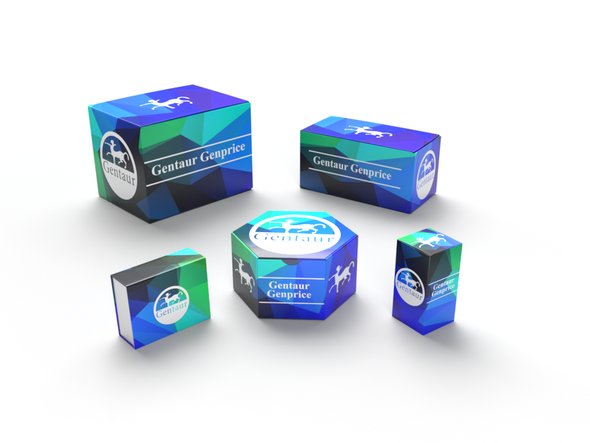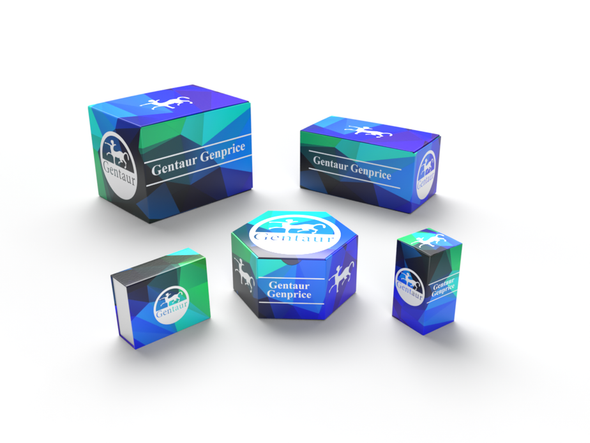Description
Mouse Anti-Human Amphiregulin Antibody | 101-M215 | Gentaur UK, US & Europe Distribution
Species: Anti-Human
Host / biotech: Mouse
Comment: N/A
Label: N/A
Clone / Antibody feature: (#8K16)
Subcategory: Monoclonal Antibody
Category: Antibody
Synonyms: AREG; AR; SDGF; AREGB; CRDGF
Isotype: IgG1
Application: WB
Detection Range: N/A
Species Reactivity/Cross reactivity: Human
Antigen: recombinant human Amphiregulin
Description: Amphiregulin (AR) is a member of the EGF family of cytokines which is comprised of at least ten proteins including EGF, TGFα, HBEGF, and the various heregulins. All of these cytokines are synthesized as transmembrane precursors and are characterized by the presence of one or several EGF structural units in their extracellular domain. The soluble forms of these cytokines are released by proteolytic cleavage. Amphiregulin was originally isolated from the conditioned media of a PMAtreated MCF 7 human breast carcinoma cell line. The AR cDNA encodes a 252 amino acid (aa) residue transmembrane precursor. Multiple forms of native AR containing either 78 or 84 aa residues and both N- and O- linked oligosaccharides have been found. Amphiregulin mRNA expression can be detected in numerous carcinoma cell lines and the epithelial cells of various human tissues including colon, stomach, breast, ovary, kidney, etc. Human AR stimulates the proliferation of various human and mouse keratinocytes, mammary epithelial cells and some fibroblasts. AR is also a growth inhibitor for various tumor cell lines. In certain colon carcinoma cell lines, AR has been shown to be an autocrine growth factor. Amphiregulin can bind to the EGF receptor. It has been suggested that in certain cell types, AR bioactivity may be mediated through the EGF receptor. The 98 aa residue long form of recombinant amphiregulin has shown to be approximately 510 fold more active than the 78 aa residue form of recombinant AR in an in vitro proliferation assay using Balb/3T3 fibroblasts.
Purity Confirmation: N/A
Endotoxin: N/A
Formulation: lyophilized
Storage Handling Stability: Lyophilized samples are stable for 2 years from date of receipt when stored at -20°C. Reconstituted antibody can be aliquoted and stored frozen at < -20°C for at least six months without detectable loss of activity.
Reconstituation: Centrifuge vial prior to opening. Reconstitute the antibody with 500 µl sterile PBS and the final concentration is 200 µg/ml.
Molecular Weight: N/A
Lenght (aa): N/A
Protein Sequence: N/A
NCBI Gene ID: 374






